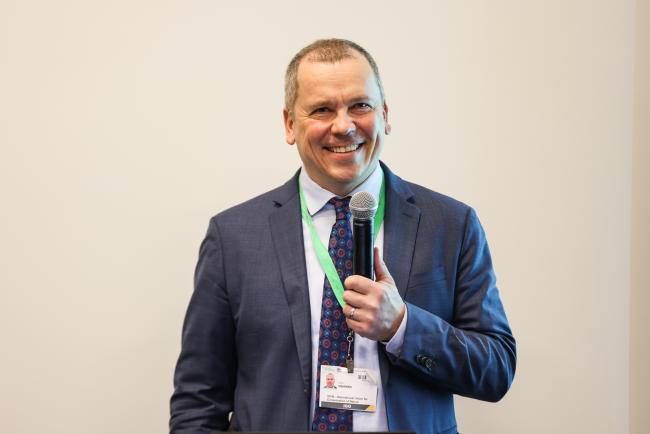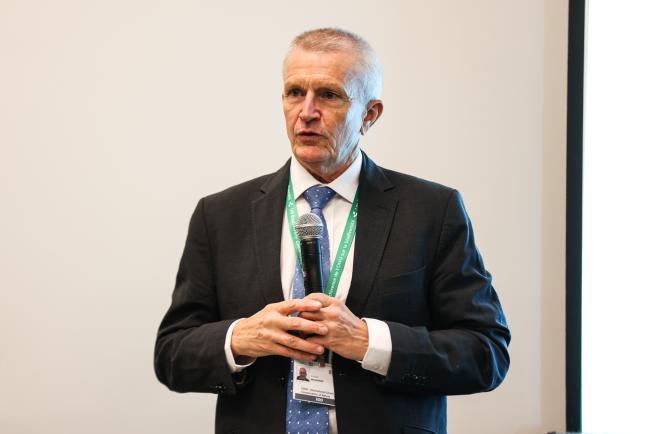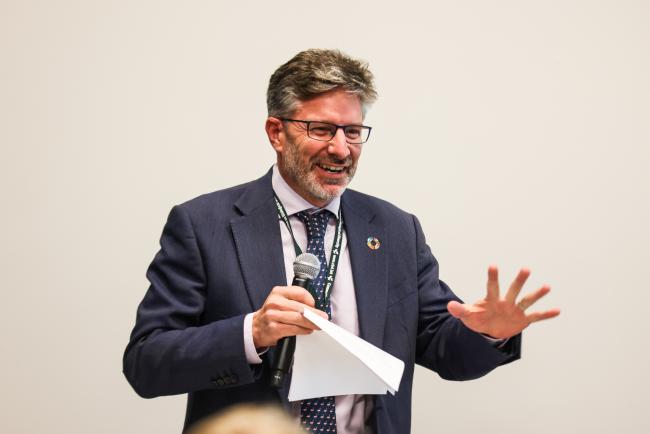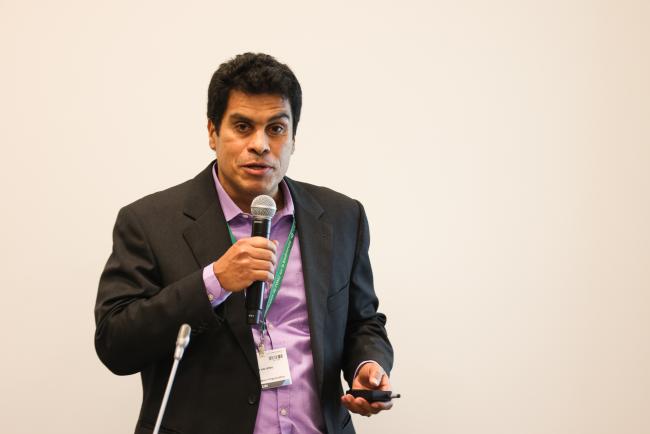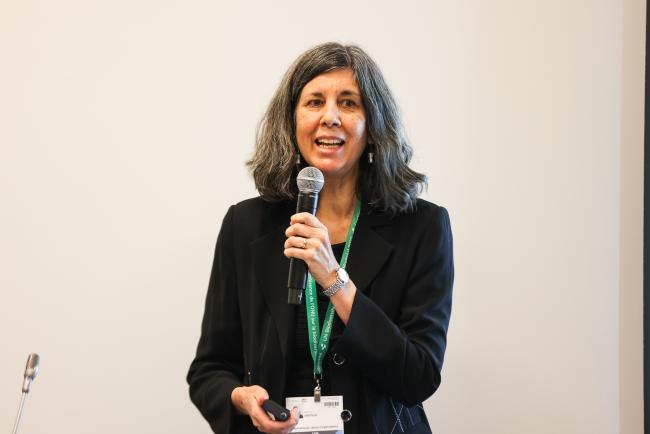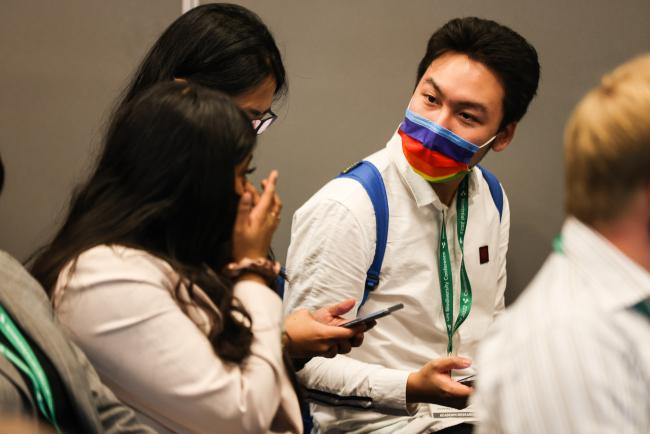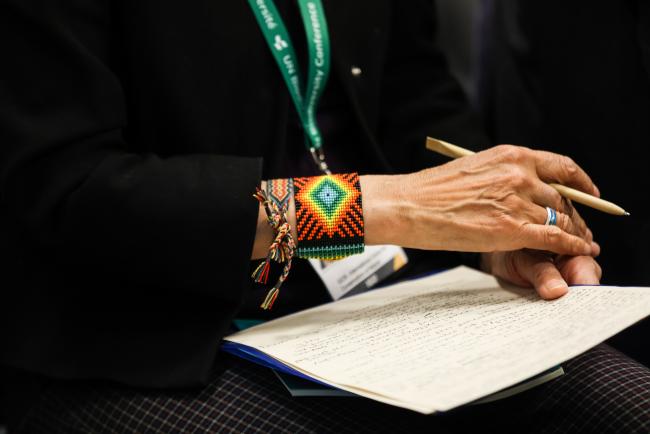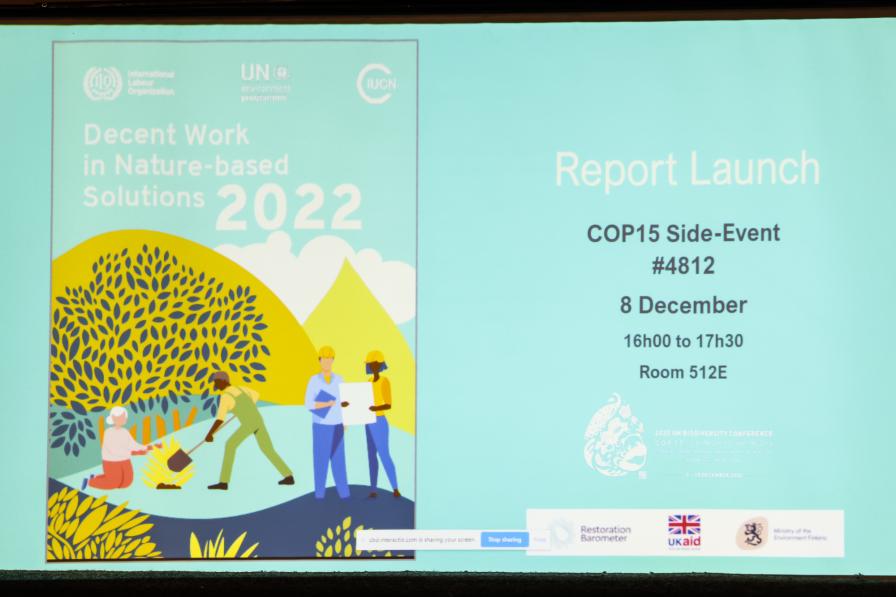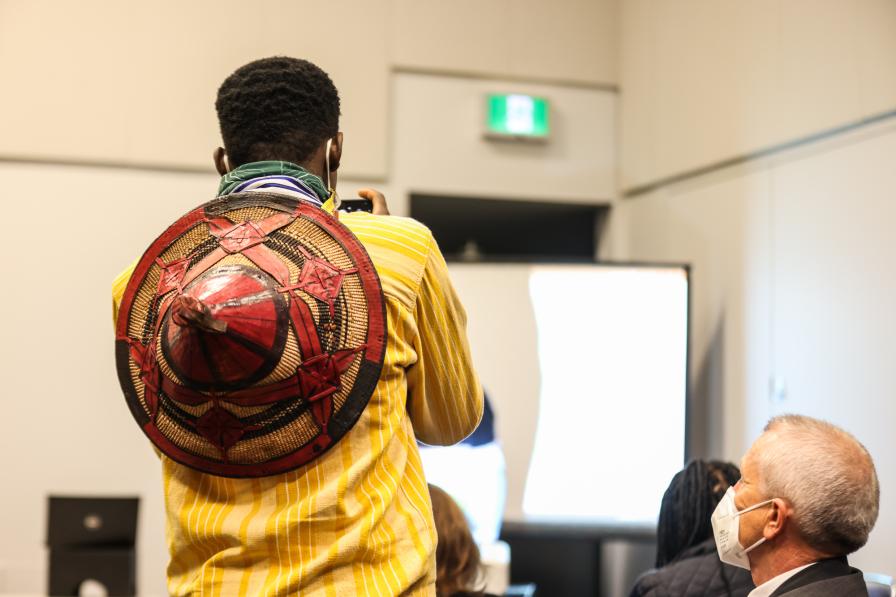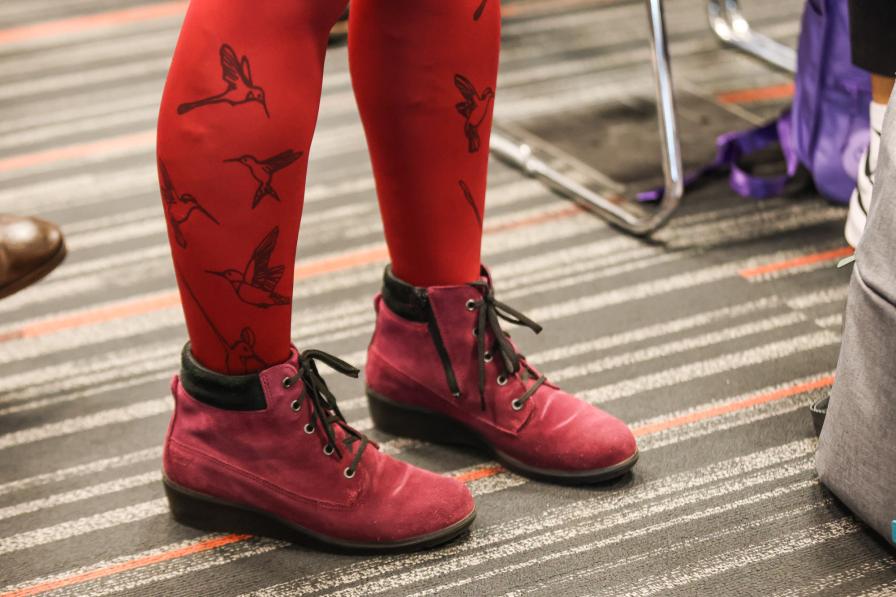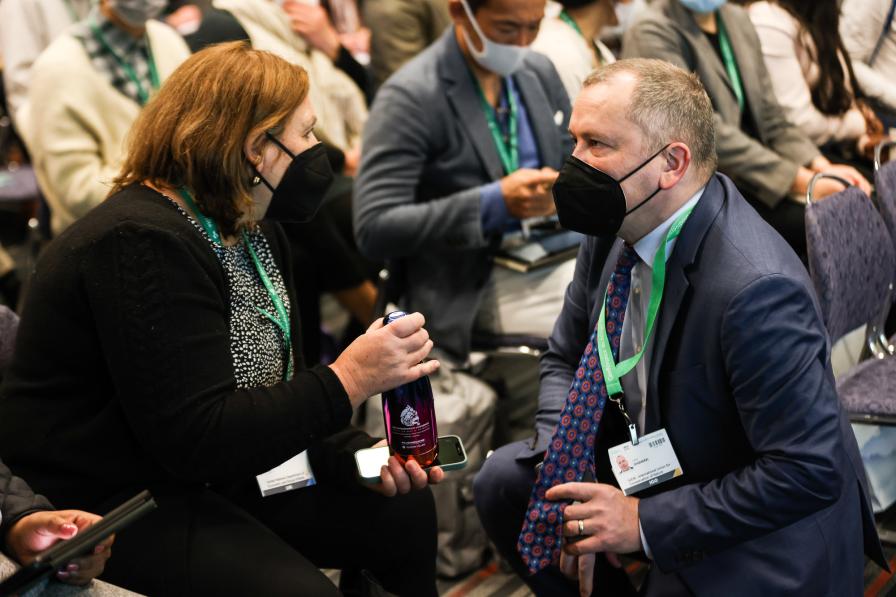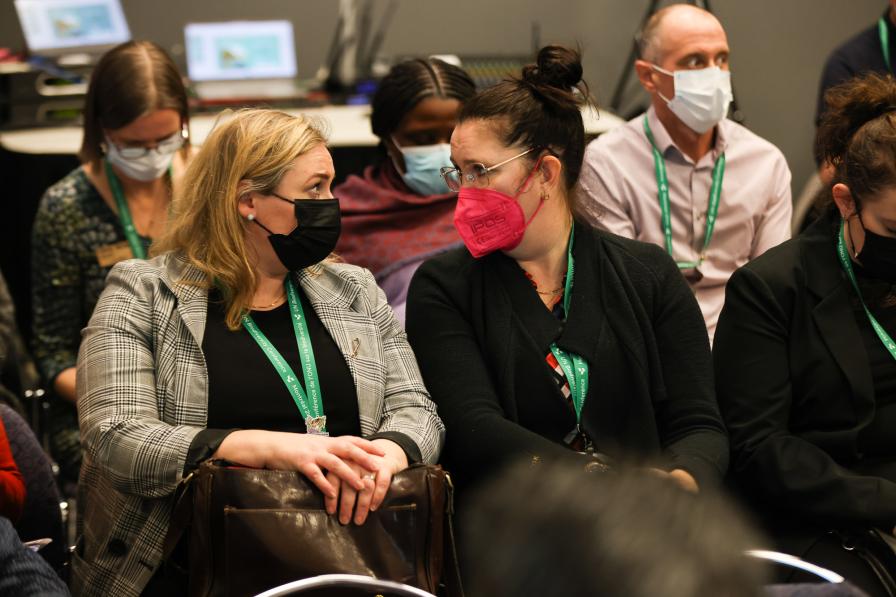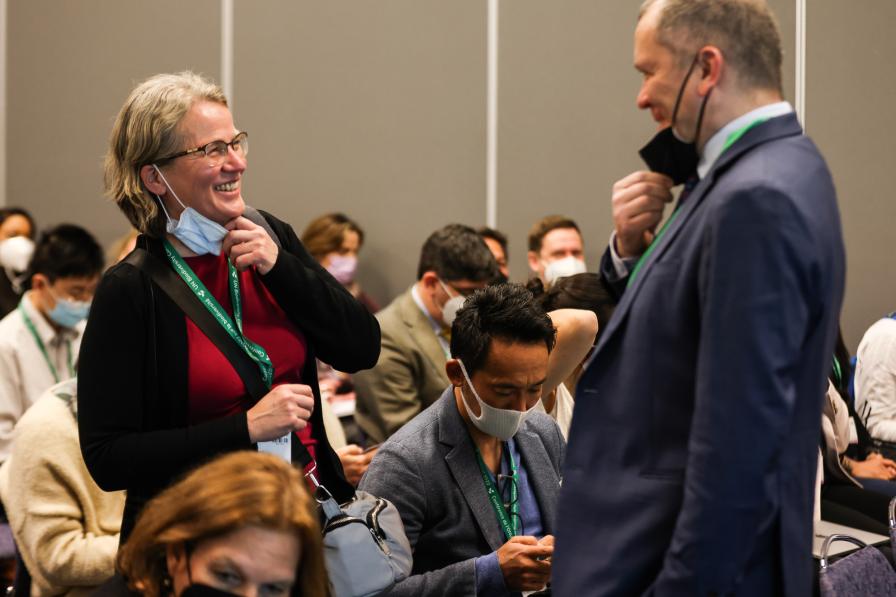About
This event launched the first edition of the report series on “Decent work in Nature-based Solutions,” which develops a framework for assessing employment in Nature-based Solutions (NbS), including the first empirical evaluation of current and potential future global employment in NbS.
This event launched the first report in a joint global biennial report series that aims to fill knowledge and advocacy gaps on how transitions to a green economy will affect the world of work, and of the role that nature-based solutions (NbS) can and do play in creating employment, especially for the poorest and most vulnerable people. The report, Decent Work in Nature-based Solutions, was produced and published by the International Labour Organization (ILO), International Union for Conservation of Nature (IUCN), and the UN Environment Programme (UNEP). It develops a framework for assessing employment in NbS, including the first empirical evaluation of current and potential future global employment in NbS.
Juha Siikamäki, Chief Economist, IUCN, moderated the event. Gilbert Houngbo, Director-General, ILO, via video, said we must consider the positive effects on work and income of tripling investments in NbS, which could create an additional 20 million jobs.
Stewart Maginnis, IUCN, stressed the need to ensure that the jobs created through NbS are decent, underlining the importance of the clear definition of NbS from the UN Environment Assembly to this effect.
Neville Ashe, Director, UNEP-World Conservation Monitoring Centre, noted the report would be produced every two years going forward. He said some jobs in NbS may not be decent, stating that more data is needed to address this challenge. He expressed hope that the connection between NbS and decent jobs becomes core to the post-2020 Global Biodiversity Framework (GBF) agenda.
Charlotte Watts, Chief Scientific Advisor, Foreign, Commonwealth and Development Office, UK, emphasized the critical role of nature for human health, wellbeing and work, and said that NbS are central to a just transition.
Maikel Lieuw-Kie-Song, ILO, noted that no systemic effort exists to monitor the quantity and quality of jobs generated by investments in NbS. He stressed that a key challenge is to determine what current activities and employment can be classified as NbS, emphasizing that for now, the report uses “NbS proxies” where people are protecting, conserving, restoring, sustainably using, and managing ecosystems in various sectors, including for agriculture, infrastructure, and payments for ecosystem services (PES) programmes.
Monica Castillo, ILO, described the ILO project on the Development of a Conceptual Framework to Support Measurement of Decent Work in NbS. She noted NbS-related opportunities for workers and called for a just transition which respects both the ILO Guidelines for a just transition towards environmentally sustainable economies and societies for all and Guidance for using the IUCN Global Standards for NbS. She noted both of these documents focus on evidence-based decision making, inclusive and meaningful stakeholder engagement, policy coherence, and tools across portfolios to maximize opportunities and mitigate risks.
Angela Andrade, IUCN, described the IUCN Global Standard for NbS, including eight criteria and 28 indicators addressing the pillars of sustainable development. She said the Standard emphasizes bottom-up, community-led, and enabling conditions to implement “good quality NbS.” She underscored the importance of the cultural context in which NbS is applied, since many Indigenous and local communities have a very different vision of what a job means, stressing that “not everything can be viewed with a lens of our Western society.”
Khungeka Njobe, WWF South Africa, urged bold action in addressing the triple planetary crisis of climate change, biodiversity loss, and pollution, as these intersect with the socio-economic challenges of poverty, inequality and unemployment, and welcomed the report for introducing the environmental sector’s potential for creating jobs.
Jennifer Corpuz, Gawis Indigenous Rights, Inc., highlighted that Indigenous Peoples and local communities (IPLCs) will bear the brunt of some of the NbS-proposed solutions without a rights-based NbS framework in place. She said that, as NbS gain popularity, there will be increased pressure on Indigenous lands. She stressed that the NbS framework should enshrine the appropriate standards and safeguards, calling for it to include a grievance mechanism, free prior informed consent, and respect for land and cultural rights. She underlined the need to recognize the work of Indigenous Peoples, which must count as part of the NbS decent work framework.
Jochen Renger, Deutsche Gesellschaft für Internationale Zusammenarbeit GmbH (GIZ), on behalf of the German Ministry for Economic Cooperation and Development, called for the GBF to include NbS for greener economies and decent jobs including, inter alia, green skills training and greening of the financial sector. He urged creating an enabling framework for a socially equitable green and blue economy through policymaking, private sector engagement, investment, capacity building, increased absorptive capacities for aid, and comprehensive social protections.
In the ensuing discussion, participants, inter alia, noted that many civil society organizations are wary of NbS being a greenwashing tool and queried how the ILO framework addresses undocumented immigrant labor. In response, panelists noted, for example, the need to professionalize decent work within NbS and not rely only on volunteerism.
Organizers: IUCN, ILO, UNEP
Contact: Juni Siikamäki | IUCN juha.siikamaki@iucn.org
For more information: https://www.iucn.org/events/iucn-event/decent-work-nature-based-solutions-ilo-iucn-unep-report-launch
All ENB photos are free to use with attribution. For this event, please use: Photo by IISD/ENB | Natalia Mroz
To receive free coverage of global environmental events delivered to your inbox, subscribe to the ENB Update newsletter.


